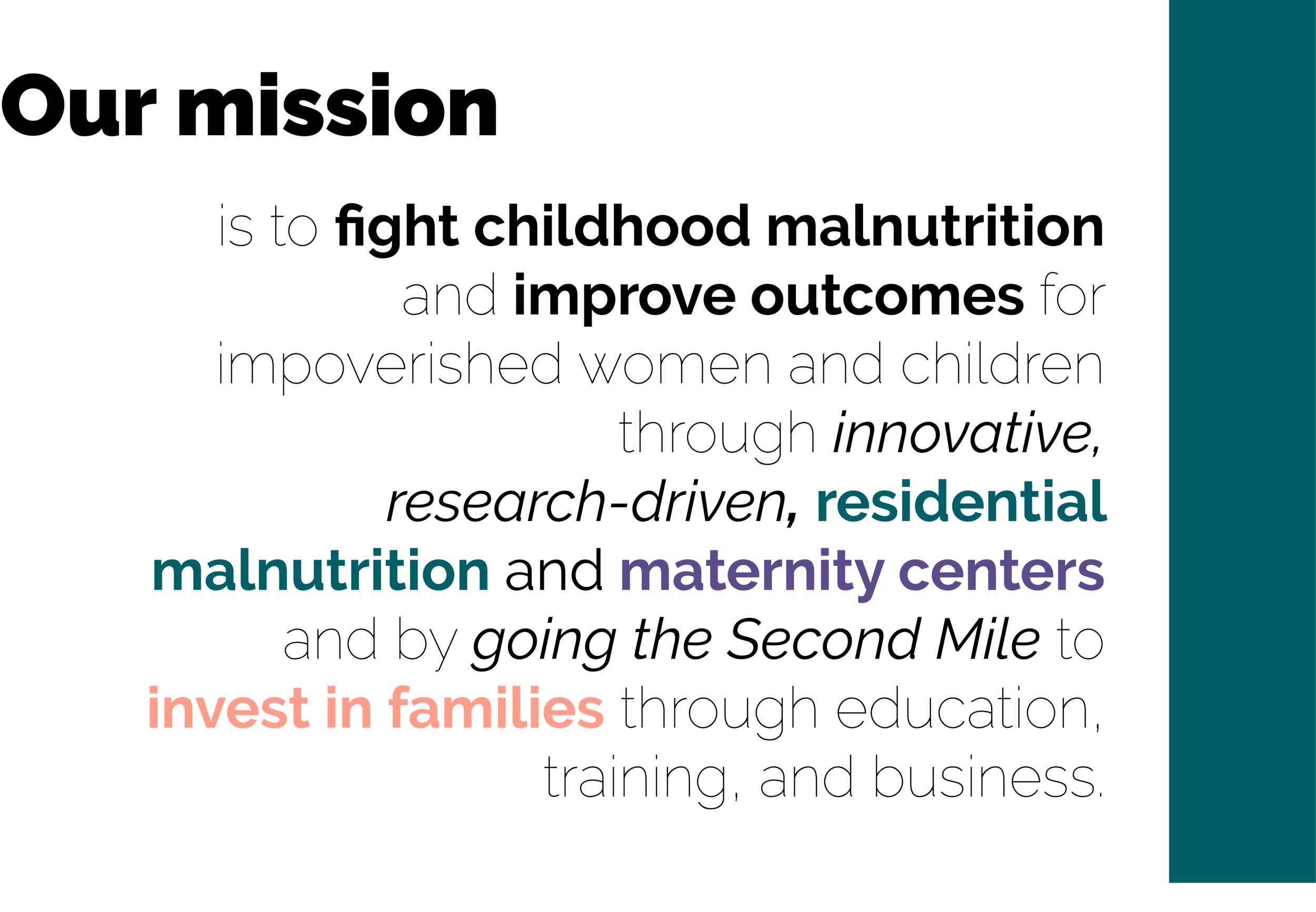WE ARE SECOND MILE HAITI
Before Second Mile Haiti, families with sick & special needs children often turned to orphanages in desperation. Only in the best case scenarios would these children survive. And even then, their parents learned nothing about their condition or the steps taken to nurse their child back to health.
In 2011 we set out to answer the question: What could we do to give children the best possible chance to stay with their families and thrive?
The answer: The Second Mile.
Our 3-step approach to treating and preventing childhood malnutrition
Proven Results
In the last decade, our services have helped thousands of Haitian families get and stay healthy - together.
Resiliency
By investing in local goods, local talent, & solar power, our doors stay open no matter the crisis.
GENDER EQUITY
Gender equity matters. More than 50% of our team and 97% of the people we serve are female.
An Unimaginable Choice
If you believed your child would only survive if you gave him away, what would you do? When faced with that horrifying choice in a country with an 80% unemployment rate and where 76% of people live on less than $2 a day, Haitian parents must make difficult decisions about their sick and vulnerable children. Haiti, a country the size of the state of Maryland, has more than 750 orphanages, and they’re filled with children whose parents are alive and very much want to care for them. That’s why Second Mile Haiti exists.
Read Second Mile Haiti's position on orphanages
By 2025, we hope to see a Second Mile Haiti Family Center touch every department in Haiti.
"Today, we know more about the negative impact of growing up in an orphanage, and that at least 80% of children in orphanages have at least one living parent – " The Guardian
"How many of the children are true orphans? Is anything being done to reunite children with their families, or to reintegrate them through family based care options? Or better still, stop and think. Is there a better way I can help these children – ?" CRS Wire
"We should stop building orphanages, invest in a community based support network and where possible, bring the child back to parents' loving arms and support them financially, after all, who better to look after a child then his/her mum and dad – ?" The News Hub
It's time to challenge what we consider A family and who we define as an orphan.
Read Second Mile Haiti's position on orphanages
THERE IS A BETTER WAY TO HELP
In response to this problem, Second Mile Haiti works with families who are most at risk of turning to orphanages. We believe that by using a comprehensive approach to treating childhood malnutrition, we can break the cycle of undernutrition in Haiti, and keep families together.













